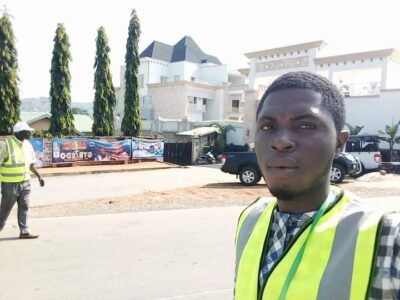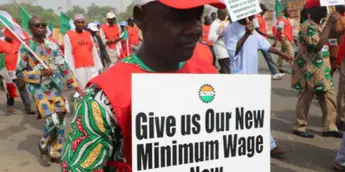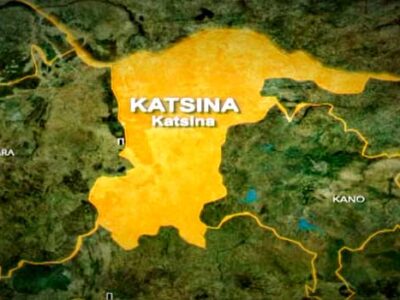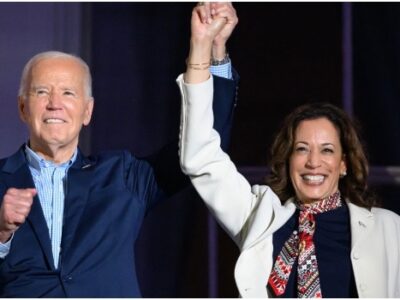By Oduntan Ajibola
As the call for the restructuring of Nigeria rages on, with the recent call coming from no other person than the former President of Nigeria fondly called Ebora Owu, Chief Olusegun Obasanjo, we now believe that the myriad of problems facing the country today is a product of the current governance structure of the country.
As much as I share that sentiment that we need to change the current governance structure but more importantly, there is urgent need to have a discussion around the Social Contract of the country. The same way democracy, just by its appellation, has proven not to be enough to solve socio-political and economic conundrums; restructuring without an accompanied valid social contract.
As concerned citizens of Nigeria, I am sure we all are disturbed with the spate of armed conflicts, killings, maiming, rapes and other forms of violence and injustice, ravaging our society today. We need to understand why the conflict in Nigeria seem intractable. One fundamental element that is amiss in our dear country is our Social Contract.
Nigeria have, over the span of six decades of her existence, experienced both democratic governance as well as military regimes. While the former is deemed to enjoy the peoples’ legitimacy, same cannot be said of the latter. In the context of this discourse, legitimacy of government is sine qua non to social contract; this however is without prejudice to several theories of Social Contract.
In an unambiguous term, Social contract is an exchange of natural rights for an organized civil society or a political order. There are numerous theorists of Social Contract ranging from Immanuel Kant, Jacques Rousseau, Rawl, etc.
They fundamentally established that for a social order to exist, humans must forgo some of the rights that nature bestowed on us and fashion a new contract that would guarantee fairness, justice, and moral claims. Of all these theorists, however, the consensus is that a valid social contract is premised on legitimacy/consent, safe for Kant. Social contract ensures life of justice; mutual respect; fairness; orderliness; and justice, the absence of it however, according to Hobbes, means a life under anarchy in any human society.
According to contemporary philosophers, the concept of social contract is a very vast one encompassing all the facets of human relationships ranging from government/people contract, man/woman interaction, parent/child, etc. This piece examines the very foundational contract of every civil society i.e. the government/people social contract and how it operates in Nigeria.
This is the contract that confers legitimacy on government whereby the people agrees to establish a government in order to ensure orderliness in the society. It also places obligations on the people as well as the government. The obligation of the people is to be law abiding while that of government is to ensure safety, fairness, justice, equity, peace, and equitable distribution of wealth that belong to the people.
The configuration of Nigeria since the 1914 amalgamation has been that of a multicultural and multiethnic society with abundance of both human and natural resources. One would naturally expect the government to discharge its duties in accordance to the dictate of the social contract, same way it is expected of the people to be law abiding and to conduct themselves in peaceful and orderly manner.
On the one hand, the people have surrendered some of their naturally dangerous rights in exchange for security of lives and properties, provision of social welfare, equitable distribution of wealth, provision of basic infrastructures etc.
The question to ask, however, is how well has the government fared in the discharge of duties placed on it by the social agreement; also, has the people of Nigeria not reneged on the social contractual terms of a peaceful and orderly coexistence? On the case at hand, the current social contract is the 1999 Constitution of the Federal Republic of Nigeria (as amended) succinctly worded in its preamble:
“We the people of Federal Republic of Nigeria. Having firmly and solemnly resolved, to live in unity and harmony as one indivisible and indissoluble sovereign nation under God, dedicated to the promotion of inter-African solidarity, world peace, international co-operation and understanding. And to provide for a constitution for the purpose of promoting good government and welfare of all persons in our country, on the principles of freedom, equality, and justice, and for the purpose of consolidating the unity of our people.
Do hereby make, enact and give to ourselves the following Constitution:- ”
Apparently, the current situation in the country indicates near absolute loss or a non-existential social contract. The current spate of killings in the country has reached its crescendo, the state has almost lost its role in securing lives and properties. From the Northeast to Northwest down to the South, nowhere can be said to be really safe.
Up north, banditry, cattle rustling, kidnapping, inter-ethnic clashes and the rampaging activities of the ISWAP are the prevalent security challenges; down south, secessionist agitation, kidnaping, police brutality/extra-judicial killings, armed robbery, cultism, ritual killings etc. are order of the day with no serious concerted effort to contain the menace.
Furthermore, the absence of a comprehensive national social security with a sound legal framework has affected negatively the socio-economic realities of the country. This has also led to an inequitable distribution of wealth whereby the poverty rate is at alarming stage and the wealth of the nation is in the hands of privileged few, leaving the endowed Nigeria to be the poverty capital of the world.
The current Covid-19 pandemic has further exposed the breach of the Nigerian social contract by the state actors as they were evidently unable to offer meaningful palliatives to the teeming population of the country during the lockdown period. There is an absence of a systemic framework to deliver social welfare to the people of Nigeria.
The government failed to successfully offer a safe haven for citizens, most especially the tax payers whose income and means of livelihood have been disrupted by the lockdown. The Guardian Newspaper reported just recently that the Economic Sustainability Committee led by the Vice President projected in its report that 39.4million people may lose jobs to Covid-19. What are the measures in place to cater for the 39.4million people and how sustainable are those measures?
In addition, the level of infrastructural development in Nigeria is abysmally nether when compared with the enormous resources bequeathed on the government by the social contract entered into by the people of Nigeria.
Power supply is still epileptic; major roads are still in a deplorable state; health care facilities across the country are not things of pride; our busiest airport is one of the ill-equipped in the world. For how long shall we continue the cycle of electioneering stratagem and government malfeasance?
On the part of the people however, it appears that they are beginning to renege on the contractual terms of an ideal society according to Hobbes. The failure of government has further pushed the Nigerian people to the state of nature which necessitated the development of social contract abinitio. The barbaric maiming and killings, ethnic crisis across the country is an attestation to this fact. Sadly, people don’t get what they deserve in Nigeria and the only way to get whatever is by taking it however possible; State of Nature!
There is no gain saying that the Nigerian state and her people is in dire need to revalidate the social contract of an ideal society. It is by so doing that the Hobbes’ prescriptions and aspirations of an ideal civil society working in tandem with the social contract can materialize in the largest black nation on earth.
Oduntan Ajibola is a peace scholar; historian; social and political columnist, his articles have appeared in many publications with various commendations and recommendations.
08125638534.










Good write up. I thought you would have talked about corruption. That’s the biggest issue here. And the worst of it is that the people eating deep into the country are old people. People that are near their graves eating so much into the country. There is so much access to money in politics that needs to be drastically reduced. Even with new social contract, if we do not fight or end corruption, no way for Nigeria. Thank you.